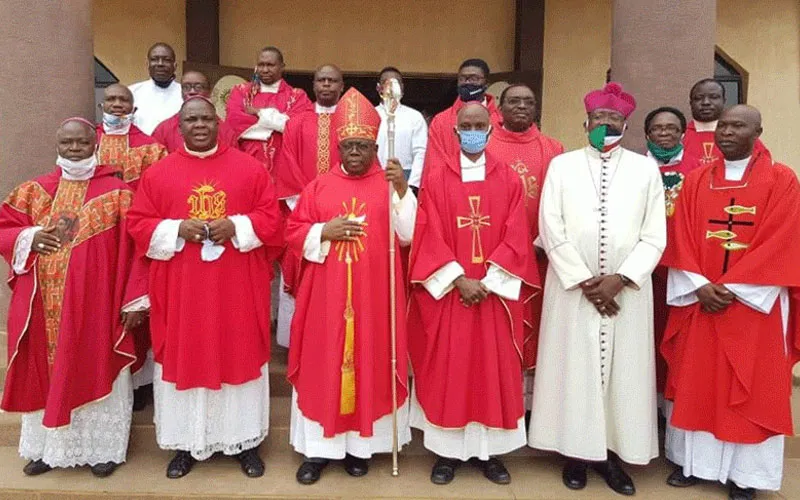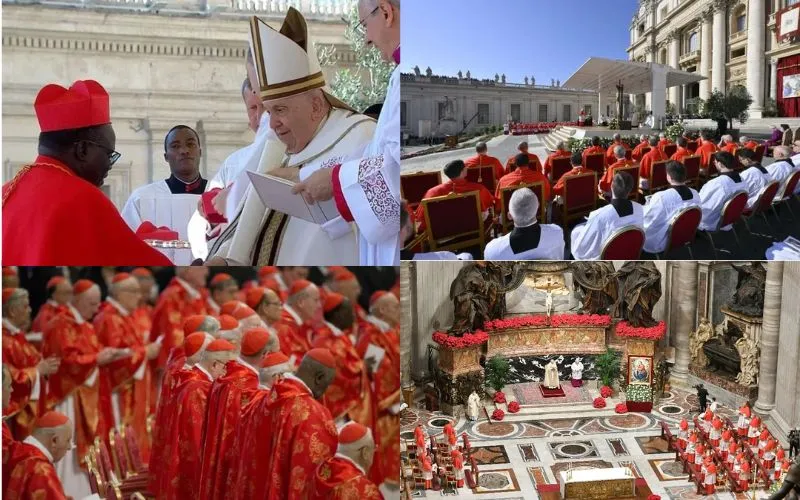As for the Fulani herdsmen and their reported attacks on innocent civilians, the Bishops note with concern “the insincerity, selfish interests and lack of political will had in the past, caused needless destruction of life and property and inflicted untold pain and hardship on innocent citizens.”
They appeal to governors in various Nigerian States to shun what they referred to as “empty promises on issues that impact the security of life and property.”
“They (governors) must work with the security agencies to courageously implement the law in all cases and sanction those who blatantly and murderously flout it in their territories. No Nigerian or foreigner should be above the law in any part of the country,” they say.
The Bishops also express their solidarity with Bishop Matthew Hassan Kukah of Nigeria’s Sokoto Diocese whose criticism of the Nigerian government attracted controversy, with some quarters accusing him of “very serious crimes.”
According to the Catholic Bishops of Ibadan Ecclesiastical Province, their counterpart, Bishop Kukah is the epitome of truth whose example must be emulated.
(Story continues below)
“Nigerians must reject mis-informants and commanders-in-mischief who love to manipulate the truth when it does not serve the unjust status quo. So it is, with the recent blitz against the Bishop of Sokoto, Most Reverend Matthew Kukah, who in his Christmas message, x-rayed some problems of this nation,” the Bishops say.
They call on Nigerians to “discern and reject such attempts to discredit and distort genuine expressions of concern for the good of the nation whenever it is made.”
They add, in their solidarity message with the Local Ordinary of Sokoto Diocese, “We stand by people like Bishop Kukah who would courageously speak up and call for genuine change irrespective of tribe, religion or calling.:
“If we all join hands to embrace the truth wherever it is found, we save our own lives and shall much quicker arrive at our destination of a better country for all,” the Bishops say.
They also exhort the faithful in Nigeria to take advantage of the Year of St. Joseph, which was declared by Pope Francis to run from 8 December 2020 to 8 December 2021.
“Let us ask St. Joseph’s intercession upon the fathers in our life and give the saint a special place in our families and prayers,” the Bishops say.
Meanwhile, they have also expressed their appreciation for the Kampala Document launched on January 21 by the Symposium of Episcopal Conferences of Africa and Madagascar (SECAM) and urged Church leaders in the country to take advantage of it in their evangelization mission.
“We urge all our Priests, Religious, Lay Faithful, seminaries and other formation houses to access, study and apply the Kampala document to concrete pastoral needs,” the Bishops say.
They add in reference to SECAM’s Kampala Document, “This is necessary so that evangelization efforts of the last 50 years in Africa may be further nurtured and the fruits therefrom, harnessed for further growth and consolidation.”
Agnes Aineah is a Kenyan journalist with a background in digital and newspaper reporting. She holds a Master of Arts in Digital Journalism from the Aga Khan University, Graduate School of Media and Communications and a Bachelor's Degree in Linguistics, Media and Communications from Kenya's Moi University. Agnes currently serves as a journalist for ACI Africa.








